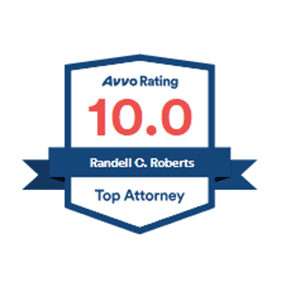Celexa, Lexapro, Luvox, Prozac, Wellbutrin and Effexor
Celexa, Lexapro, Luvox, Prozac, Wellbutrin and Effexor are all drugs used to treat depression. These drugs are part of a class of medications called selective serotonin re-uptake inhibitors. SSRIs are not only the most commonly prescribed anti-depressants, they are also routinely used off-label (without FDA approval or testing) for other conditions, such as anxiety, premenstrual dysphoric disorder, panic disorder, obsessive-compulsive disorder and body dysmorphic disorder.
In 2011, the Centers for Disease Control indicated that around 1 in 10 Americans over age 12 takes anti-depressants, with most taking SSRIs. The majority – more than 60 percent – have taken the drug for more than two years. There is limited information on the long-term effects of SSRI use. The data that are available, however, show that even short-term SSRI use can have serious side effects and can cause dangerous complications.
Many patients taking SSRIs, including Celexa, Lexapro, Luvox, Prozac, Wellbutrin and Effexor, were not fully warned about the dangers or risks they faced when they began taking these medications. Unfortunately, the consequences can be serious or even fatal.
If you or a loved one has experienced unexpected side effects or complications as a result of SSRI medications, it is important that you understand your legal rights. Lawsuits have already been filed against many of the manufacturers of SSRI drugs, and you also may be able to take legal action to recover compensation if you or a loved one has been harmed.
The dangerous drug lawyers at Roberts & Roberts are offering free consultations for patients to review potential claims.
Dangers of Celexa, Lexapro, Luvox, Prozac, Wellbutrin & Effexor

This is not the only impact that SSRIs can have. SSRIs can also cause a number of other reactions, including causing patients to develop side effects that make them very sick or that put their life at risk. For example:
- A New England Journal of Medicine study revealed that a mother who takes an SSRI during the third trimester of pregnancy was six times more likely to give birth to a child with persistent pulmonary hypertension of the newborn (PPHN). PPHN is a serious condition that prevents blood from flowing to the lungs and makes the movement of oxygen throughout the body much more difficult for the baby. The condition can be fatal.
- A New England Journal of Medicine Study indicated that an infant exposed to Prozac in the womb was twice as likely to develop three or more congenital abnormalities.
- A case study of SSRI use in 2011 indicated that babies exposed to SSRIs during any trimester of pregnancy were more likely to be born with a cleft palate.
- A study in the British Medical Journal indicated that patients taking higher doses of citalopram drugs including Celexa or Lexapro had an increased risk of developing an abnormal heartbeat. When taking greater than 40 mg of these drugs, nearly one 1 in 5 patients had longer QT intervals, which is an indicator of cardiac risk. The drug’s interference with the heart’s function could lead to sudden death.
- A study published in JAMA Internal Medicine indicated that SSRI drugs can interfere with surgical procedures and healing after surgery. After investigating medical records for more than half a million people who underwent surgery between 2006 and 2008, investigators found that patients on SSRIs were 10 percent more likely to experience surgical complications, including bleeding and death.
- A study in the Journal of the American Medical Association indicated that children treated with SSRI medications experienced suicidal thoughts and attempted suicide at twice the rates of those not taking these antidepressant medications.
These and other studies revealed that SSRI medications may have many different consequences for different patients.
Anti-depressant medications are prescribed not only by psychiatrists, but also by primary care physicians, some of whom have been described as “handing them out like candy.” Many of the patients who take these medications do not understand the risks.
Side Effects of SSRI Medications
Based on adverse events reports, clinical trials and other information, potential side effects faced by those who take SSRIs include:
- Serotonin syndrome.
- Increased risk of suicidal tendencies.
- Birth defects, including persistent pulmonary hypertension of the newborn, heart defects and cleft lips or palates.
- Reduced capacity for blood clotting.
- Hyponatremia, or a dangerous drop in sodium levels.
- Irregular heartbeat, especially on higher doses.
- Sexual dysfunction.
- Addiction.
The FDA requires manufacturers of SSRIs to warn patients about the increased risk of suicide. In 2007, the FDA began requiring a black box warning label, the most serious type of medication warning, to alert patients and healthcare providers that children and adolescents on SSRIs are more likely to experience suicidal thoughts.
The FDA has also issued other warnings and safety communications as well, including an official warning related to the increased risk of PPHN and serotonin syndrome.
Our Dangerous Drug Lawyers Can Help
If you have been injured by a dangerous drug, you should consult an experienced lawyer to learn about your legal rights and to have your case evaluated. An attorney can assist you with all aspects of your claim, from helping you to gather evidence to assisting you in deciding whether to join a class action or multi-district litigation or to file your own independent claim. Your attorney can also help you to negotiate a settlement or prove your case to obtain compensation for medical bills, lost income, pain and suffering, emotional distress or wrongful death damages.
At Roberts & Roberts, our dangerous drug lawyers are investigating claims related to Celexa, Lexapro, Luvox, Prozac, Wellbutrin and Effexor. If you or a loved one developed complications while taking an SSRI medication, contact us today at 903-597-6000 or contact us online. The call costs you nothing … It could mean everything.
Sources:
- CDC – Antidepressant Use in Persons Aged 12 and Over: United States, 2005–2008
- USA Today – Number of Americans taking antidepressants doubles
- Mayo Clinic – Selective serotonin reuptake inhibitors (SSRIs)
- National Institute of Health – Antidepressant use in children and adolescents: Practice Touch Points to Guide Pediatricians
- HealthDay – Antidepressants Celexa, Lexapro Tied to Irregular Heartbeat: Study
- WebMD – Some Antidepressants Linked to Surgical Risks







